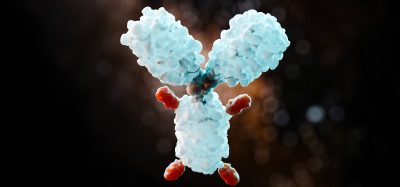Immunotherapy: antibody set for combating tumours
Posted: 25 August 2023 | Drug Target Review | No comments yet
A recent study sheds light on the potential of artificial DNA structures that, when combined with antibodies, guide the immune system to target cancer cells specifically.


Immunotherapy holds great promise in the battle against cancer. The fundamental goal is to trigger the body’s immune system to recognise and eliminate cancerous cells. However, this elimination needs to be precise and effective to spare healthy cells from harm. A collaborative team from LMU, the Technical University of Munich (TUM), and Helmholtz Munich have produced a new study in Nature Nanotechnology, introducing a promising technique for creating customizable agents that can accomplish this feat. “The centrepiece is a tiny chassis of folded DNA strands that can be specifically fitted with any antibodies,” explains Professor Sebastian Kobold.
Leveraging DNA origami for T-cell mobilisation
These innovative agents, termed programmable T-cell engagers (PTEs), are constructed using DNA origami, a nanotechnology where DNA strands fold themselves into predetermined structures, initially designed on a computer. Their design enables attachment of distinct antibodies at four positions. Antibodies specific to particular tumour cells are affixed on one side, while antibodies recognized by the immune system’s T-cells are affixed on the other. Subsequently, T-cells launch an assault on the targeted cells.
“This approach permits us to produce all kinds of different PTEs and adapt them for optimized effects,” says Dr Adrian Gottschlich, one of the study’s lead authors. “Infinite combinations are in theory possible, making PTE a highly promising platform for treating cancer.”
The scientists produced 105 unique antibody combinations for their investigation, assessing their ability to precisely bind to target cells and recruit T-cells. These combinations were constructed modularly, bypassing the previously laborious process of antibody optimisation. The researchers demonstrated the destruction of over 90 percent of cancer cells within 24 hours. To determine if this method worked within living organisms, Professor Kobold and his team tested whether PTEs could recognize and induce the elimination of cancer cells in animals with tumours.
Flexible and customisable
Gottschlich elucidates that the capacity to attach multiple antibodies simultaneously enables more precise targeting of tumour cells. Additionally, immune system activation becomes more manageable. This bodes well for more effective cancer treatment, as it distinguishes more accurately between afflicted and healthy cells, thus curbing side effects. Given the modularity, adaptability, and precise design offered by DNA origami technologies, the researchers anticipate the development of a wide array of intricate immunotherapy platforms, some even incorporating logical control.
Related topics
Antibodies, DNA, Targets
Related conditions
Cancer
Related organisations
Technical University of Munich (TUM)








